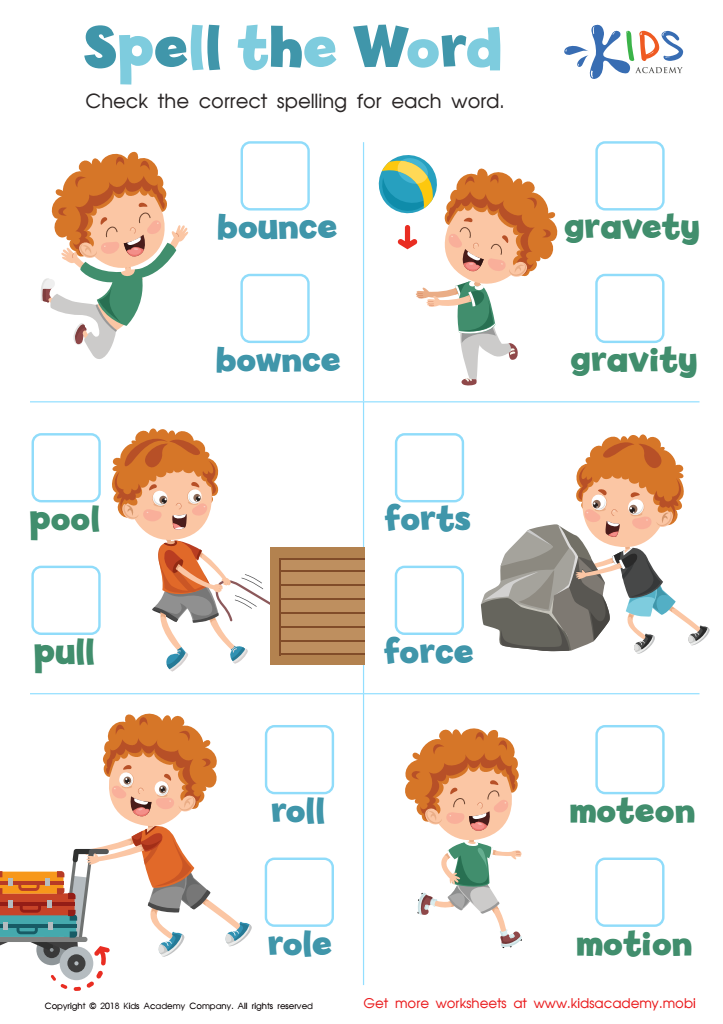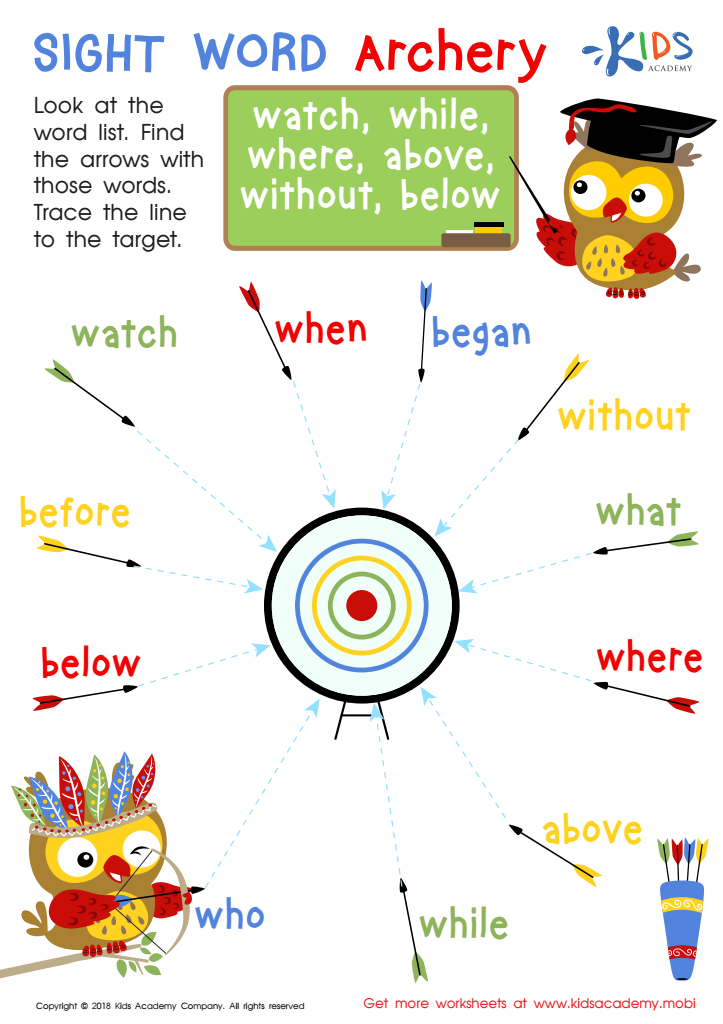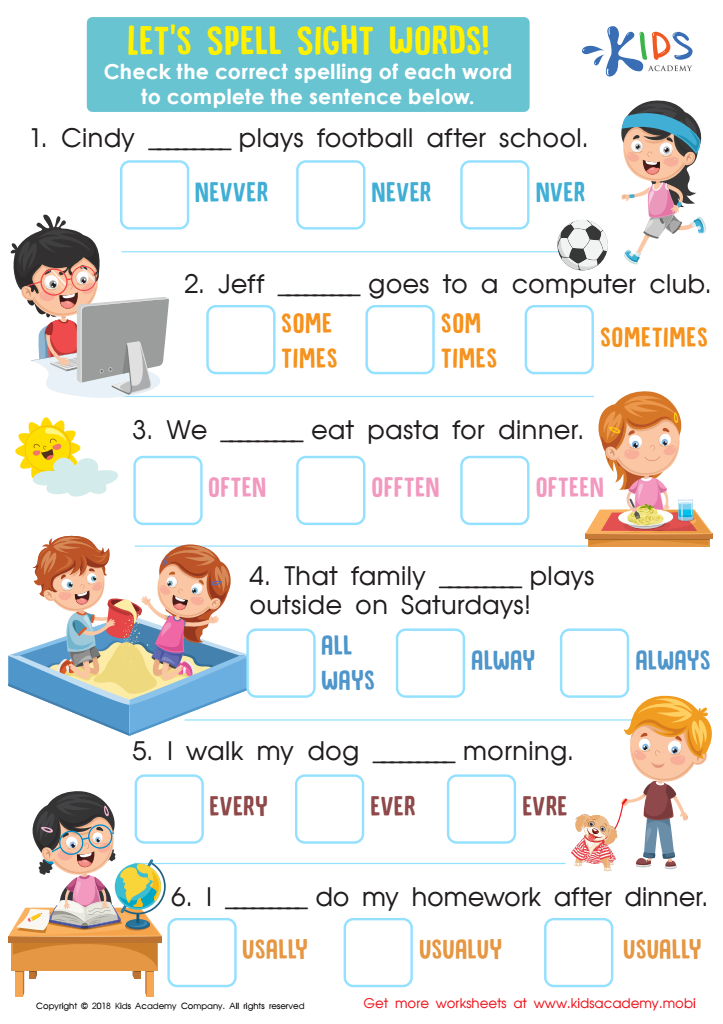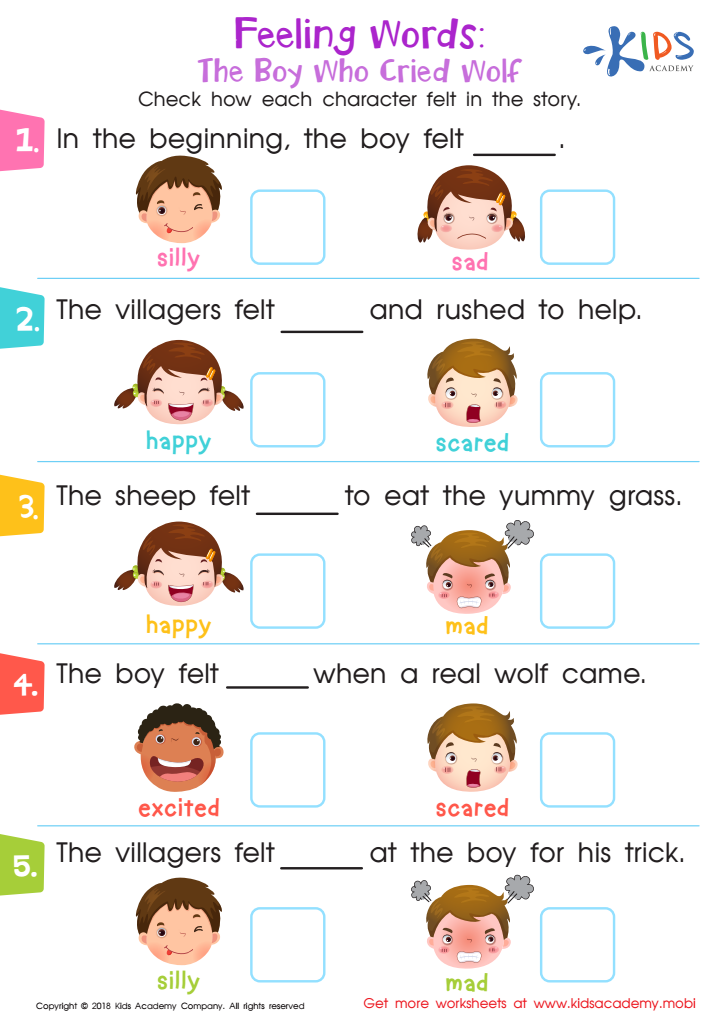Reading skills development Building Vocabulary Worksheets for Ages 3-9
4 filtered results
-
From - To
Boost your child's reading skills with our engaging Building Vocabulary Worksheets, designed for ages 3-9! Our worksheets offer fun and interactive activities that foster vocabulary growth, enhance comprehension, and support early literacy. Each worksheet is tailored to accommodate various learning styles, helping children understand new words through context, matching, and fill-in-the-blank exercises. Perfect for home or classroom use, these resources ensure that young learners develop confidence and a lifelong love for reading. Explore our comprehensive selection to spark curiosity and creativity, making vocabulary development an enjoyable and rewarding experience for your child! Start building a strong foundation in reading skills today!


Spell the Word Worksheet


Sight Word Archery Worksheet


Let's Spell Sight Words Worksheet


Feeling Words: The Boy Who Cried Wolf Worksheet
Developing reading skills and building vocabulary in children aged 3-9 is crucial for a variety of reasons. During these formative years, children are like sponges, absorbing information and concepts that serve as the foundation for their future learning. A strong vocabulary is directly linked to improved comprehension, enabling children to understand and engage with texts as they progress in school.
When parents and teachers actively promote reading skills and vocabulary development, they help foster a love for books and learning. This early interest encourages lifelong reading habits, ultimately supporting academic success. Moreover, children with rich vocabularies tend to express themselves more clearly and confidently, enhancing their communication skills.
Additionally, reading and vocabulary development have a significant impact on social and emotional growth. Well-read children can relate to diverse experiences and perspectives, fostering empathy and social understanding. Engaging conversations driven by a richer vocabulary also help in forming better relationships with peers and adults.
Ultimately, investing time in developing reading and vocabulary skills enhances a child's cognitive development, boosts self-esteem, and sets the stage for a successful academic journey. Parents and teachers play a vital role, shaping the literacy landscape during these critical years.
 Assign to My Students
Assign to My Students



.jpg)











